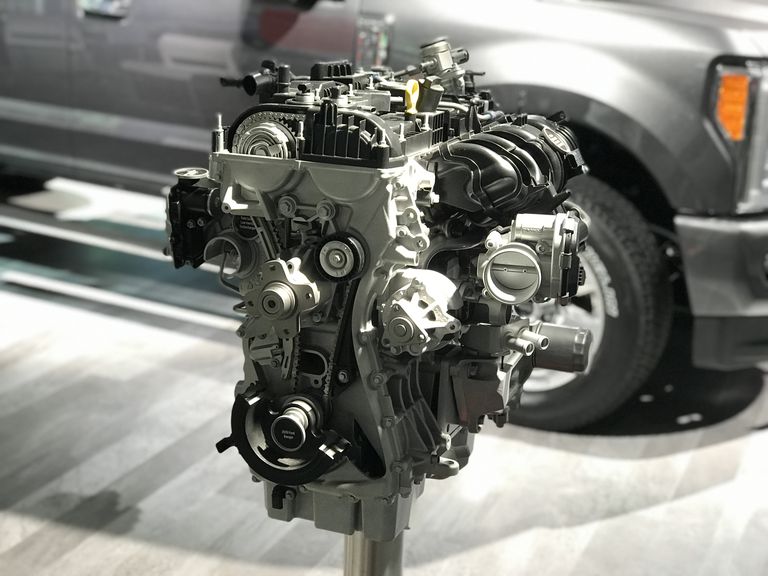Top Benefits of Choosing the 2.2 Ford Ranger Engine for Your Next Pickup
Top Benefits of Choosing the 2.2 Ford Ranger Engine for Your Next Pickup
Blog Article
What Makes a Car Engine Run Efficiently: Top Tips for Optimum Care
The smooth procedure of an auto engine is essential to both performance and durability, making optimum treatment a vital responsibility for car owners. What details steps should you prioritize to ensure your engine continues to be in peak problem?
Routine Oil Adjustments
One of the most crucial elements of car upkeep is ensuring your engine receives routine oil modifications. Engine oil lubes inner parts, reduces friction, and helps maintain optimum operating temperature levels. Over time, oil deteriorates due to warmth, pollutants, and the all-natural results of burning, resulting in minimized effectiveness and possible engine damage.
Most producers recommend transforming the oil every 5,000 to 7,500 miles, however this period can differ based on driving problems and oil type. Artificial oils may allow for longer periods between adjustments. Normal oil changes not only enhance engine performance but additionally boost gas performance, as tidy oil advertises smoother procedure.
Neglecting oil adjustments can cause sludge build-up, which impairs blood circulation and can result in extreme engine issues. It is essential to examine oil levels frequently and check for any type of uncommon modifications in shade or uniformity, which could indicate contamination or degradation.

Maintaining Coolant Degrees
Maintaining correct coolant degrees is crucial for protecting against engine getting too hot and guaranteeing optimum efficiency. The coolant, generally a combination of water and antifreeze, distributes with the engine, absorbing warm and preventing thermal tension. Insufficient coolant can cause increased engine temperature levels, which may create severe damages or perhaps overall engine failing.
To preserve optimum coolant degrees, frequently inspect the coolant reservoir, typically located in the engine bay. Make sure the coolant is filled up to the recommended mark, as indicated in your car's proprietor manual. It is suggested to inspect the levels at least when a month or soon journeys, specifically during extreme weather.
If you notice that the coolant degree is consistently reduced, there might be a leak in the cooling system, which must be dealt with quickly to stop more issues. 2.2 ford ranger engine. Additionally, flushing the coolant system every 2 to 3 years can help eliminate any kind of built up particles and make sure effective warmth exchange
Monitoring Air Filters

It is suggested to examine the air filter every 12,000 to 15,000 miles, or a lot more regularly if driving in messy or negative conditions. An easy aesthetic assessment can commonly disclose whether the filter is unclean or harmed. If the filter appears blemished or has noticeable dust build-up, it must be changed quickly.
Using a top quality air filter created for your details car design can better improve engine performance. In addition, some link cars may take advantage of multiple-use filters that can be cleansed and re-installed, giving a ecologically pleasant and cost-effective alternative.
Inspecting Flicker Plugs
Flicker plugs are crucial elements of a vehicle's ignition system, directly affecting engine efficiency and efficiency. They develop the stimulate that stirs up the air-fuel blend in the burning chamber, assisting in the engine's power generation. Normal inspection of ignition system is vital for preserving ideal engine feature and protecting against potential concerns.
Dark soot or oil deposits can show inappropriate burning, while a white or raw look might suggest getting too hot. Both problems call for immediate attention to protect against additional engine damages.
It's recommended to examine ignition system every 30,000 miles, or as advised in your lorry's proprietor handbook. Additionally, consider changing them according to the producer's guidelines, as worn or old stimulate plugs can cause misfires, decreased gas efficiency, and enhanced emissions.
Tracking Tire Pressure
Making certain proper tire pressure is an important facet click now of car safety and security and efficiency. Under-inflated tires can cause lowered fuel effectiveness, boosted tire wear, and compromised handling. Conversely, over-inflated tires can reduce grip and increase the risk of blowouts. As a result, routine tracking of tire pressure is vital for optimum vehicle procedure.
Tire pressure should be inspected at the very least when a month and before lengthy journeys. Utilize a dependable tire stress scale to determine the stress when the tires are cool, preferably prior to the vehicle has actually been driven for a minimum of three hours. Refer to the vehicle's owner guidebook or the placard located on the driver's side door jamb for the producer's suggested stress levels.
It is very important to keep in mind that tire pressure can vary with modifications in temperature; a decrease of 10 ° F can lead to a 1-2 psi reduction in pressure. In addition, visually evaluate tires for any type of indicators of wear or damages throughout your surveillance routine. Keeping appropriate tire pressure not only boosts vehicle safety and security yet also boosts gas effectiveness and extends tire life, inevitably adding to a smoother engine efficiency.
Final Thought
To conclude, preserving a car engine's smooth procedure needs persistent attention to a number of key variables. Normal oil changes, appropriate coolant degrees, tidy air filters, properly maintained ignition system, and optimal tire pressure collectively add to enhanced performance and longevity. Adhering to these maintenance methods not only enhances gas performance yet likewise promotes a safer driving experience. Inevitably, an aggressive strategy to engine treatment is important for making sure dependability and functionality with time. 2.2 ford ranger engine.
One of the most crucial elements of car maintenance is ensuring your engine obtains regular oil modifications. Engine oil lubes interior elements, lowers friction, and aids maintain optimum operating temperature levels. Regular oil changes not only i was reading this boost engine efficiency but also improve gas performance, as clean oil advertises smoother operation.
Insufficient coolant can lead to raised engine temperatures, which may cause extreme damage or also overall engine failure.

Report this page